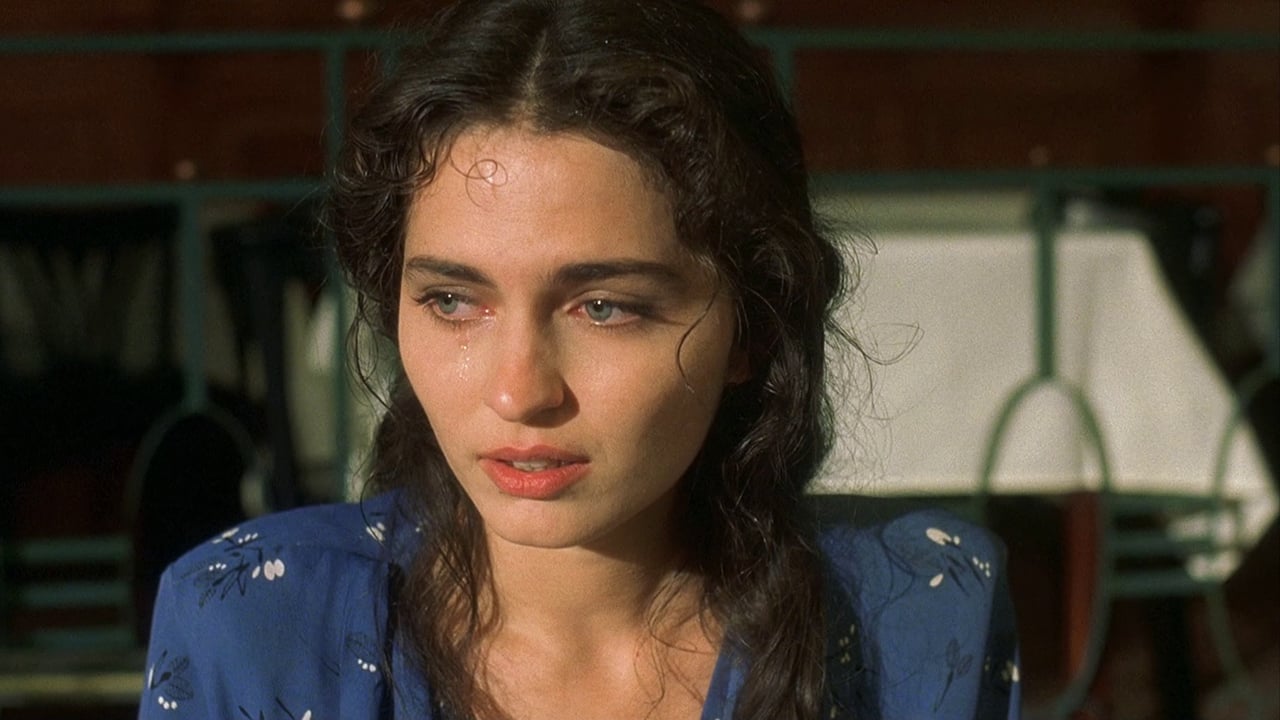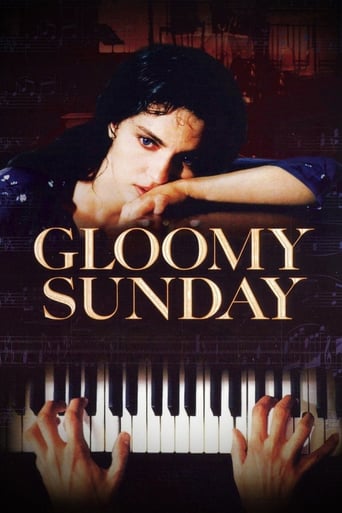



Sadly Over-hyped
Plot so thin, it passes unnoticed.
Boring
The storyline feels a little thin and moth-eaten in parts but this sequel is plenty of fun.
View MoreI wrote this brief review because it was the first movie I went to with my former partner in 2003, in that small cinema mentioned in trivia, in Christchurch, New Zealand, now destroyed by the earthquake of February 2011. She subsequently gave me a DVD of the movie which I went to watch the other night only to discover it is gone.So I guess this movie is especially poignant to me. But emotions aside, the reason it ran so long in Christchurch is that it very, very good, albeit not perfect. I will not go over the story line, which others have well commented upon. But what, IMHO, sets this movie aside is the haunting atmosphere, the complexity of the characters, and their relationships. Others will struggle with the German soundtrack and English subtitles but that, in my opinion, adds to its mystery.It is really two stories; one the love triangle, the other the outcome of the Nazi invasion of Hungary, but it does manage to pull these together at the end. It is a bit contrived but ultimately does work.The acting is a bit uneven (Hans, the SS officer is a bit off), but otherwise everything about this is great. You will probably never see this in a theatre or on television but for serious film collectors, this is highly recommended.
View MoreI haven't watched such a good movie for a while. It includes history, love, psychological aspects. The music is wonderful, the actors are brilliant. It keeps your attention and has an unexpected ending. The story plays before, during and after the second world war. The main characters work in a Budapest restaurant. The owner (he is Jewish) is in a relationship with the waitress. He, Laszlo, hires pianist Andras, and both men love Ilona, which is further complicated when their regular customer Hans, an SS colonel, begins to pursue Ilona's affections. Hans wants to marry her, but she refuses his offer. When Hans jumps into a river, Laszlo saves his life and Hans promises him to protect him from the Nazis. Andras the composer falls in love with Ilona, too. They share Ilona who loves them both. Andras composes a song - "Gloomy Sunday". It is published and soon famous. The bad thing is that more and more people who listen to it commit suicide. More and more Jewish people are deported. Hans who went back to Germany return as a Nazi officer.....
View More(Note: Over 500 of my movie reviews are now available in my book "Cut to the Chaise Lounge or I Can't Believe I Swallowed the Remote!" Get it at Amazon.)This is the kind of movie that brings to us a deep and abiding sadness that ultimately results in what the Greek tragedians called catharsis. Set in Budapest just before and during World War II we see the tragedy that engulfed Europe played out in a triangle of love involving a Jewish restaurateur, Laszlo (Joachim Krol), a brilliant young pianist, Andras (Stefano Dionisi), and a beautiful waitress Ilone (Ericka Marozsan). That triangle is besieged by an outsider who is the antithesis of all that love should be. He is Hans Wieck (BenBecker), a German Nazi.Ericka Marozsan who plays the waitress Ilone is strikingly beautiful and sweetly and irresistibly charming as she must be since the two men agree to share her. They can't help themselves and in differing ways she loves them both. Whom she doesn't love is Hans Wieck.Like so many movies set during this most shameful time for Europe and much of humankind in general, there is something close to an idyllic scene before the deluge, and then it all come apart in the most horrific way, with the cattle cars and the mindless brutality of genocide and war. And yet there were those who endured, signified in the movie as Ilone puts it, "après le deluge, nous"(which is a play on the words of France's Louis XV who supposed said in the face of revolution, " après moi, le deluge," meaning after they kill me, the flood.(This is an almost totally irrelevant aside, but as I looked up the Louis XV quote I ran across a surprising but strangely apt usage of the phrase by Roger Bannister, the first person to break the four minute barrier in the mile race. He is quoted as saying "après moi, le deluge," meaning in his case, "after I break four minute mile barrier, there will be many others." He was right.) The plot revolves around a song "Gloomy Sunday," composed by the piano player. The song is sadly beautiful and for some people the effect is so intense that they kill themselves.Now to a kind of explication of the story from the point of view of who got what and what the moral or existential lesson of the movie might be.The film begins in the present. We see a maitre d' of a restaurant in Budapest--or perhaps he is the owner--awaiting an important party that will dine at his restaurant. They arrive. They are German. They dine. The song is played and the important man who had been there many years before during the war falls dead. We don't know it but he is the last victim of the song, and he is the ex-Nazi Hans, now a very successful business man. The maitre d' is the son of the beautiful waitress. But we don't know that yet. This is the kind of film that, when it is over, you will want to go back and see the initial scene again. When you do you will realize that it wasn't the song that killed him. The only way most people will realize that is to see the opening scene again. If you missed it, don't feel bad. I didn't even get it completely until just few moments ago.Who got what? The evil Nazi who betrayed a friend and forced himself upon a woman he supposed loved and then betrayed her, became rich, successful and lived into his eighties. The brilliant composer died by his own hand ironically with the gun of the Nazi oppressor. The Jewish restaurateur, who is a wise and deeply loving man, is sent away on a cattle car and is never heard from again. Ilone is given the restaurant and bears a son. There is some ambiguity about who the father might be. He could be any of the three men. Since the way the scenes are ordered forcing us to see her pregnant at the grave of the young composer, yet only after she has been forced into intercourse by the Nazi, we are uncertain. The cinematic timing would suggest Hans, but what she says to the grave of the composer suggests the child is his. However when we see in retrospect (in the first scene of the movie) the man identified as her son (the maitre d') it is clear that the restaurateur is the father.So who triumphs? Nobody of course. The seduction of Europe by fascism was a great tragedy for Europe. Ilone survives and the restaurateur survives in the person of his son. Again what is the message? And I think the answer is, there is no message, there is no contrived or ordered moral to the story. There are only the blunt and mindless facts of what happened to these people and to Europe leading to a sense of the melancholy mystery of life for which we have no answer.Ericka Marozsan is my new true love. She is talented, captivating, sensuous, smooth and very winning. She is a bit too beautiful for these old eyes to bear. It is funny that I had never seen her before, but she plays mostly in Hungarian productions.
View MoreThis beautiful and moving film provides via a sensitively handled love affair an intriguingly subtle morality play.The owner of a restaurant saves the life of a German who is trying to commit suicide after being turned down - by the restaurateur's mistress.This character goes on to achieve power as a Nazi. He uses his power to save 1000 Jews from the concentration camps, and makes a fortune for himself in the process.He does good simply to benefit himself. Was it right to save his life? Had he died, so many other lives would not have been saved. His life is interlinked with the lives and deaths of other people.It would be unfair to elaborate further on this theme, as it would give away the plot.The film also returns to the idea of life and death with its theme of suicide; suicide being the ultimate way to take control of your own life.With all of these thoughts, it is still an entertaining and uplifting movie, with the most exquisite theme. Life and death are united in the English lyrics given at the end, which combine gloom and hope in the most extraordinary fashion.A fair bit of philosophy built into a simple and tastefully done move makes for good entertainment.
View More